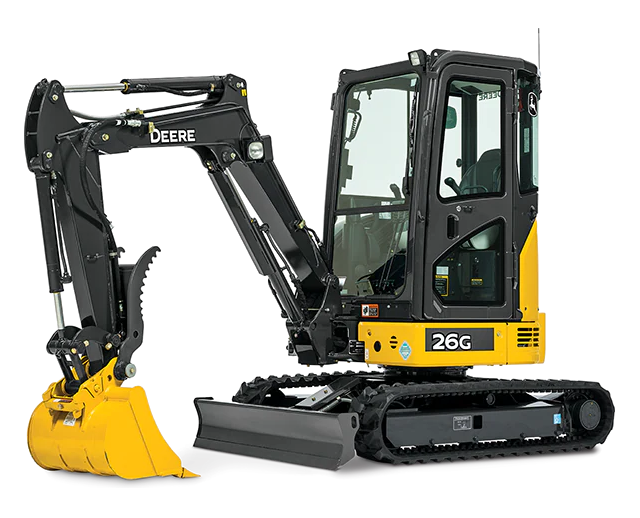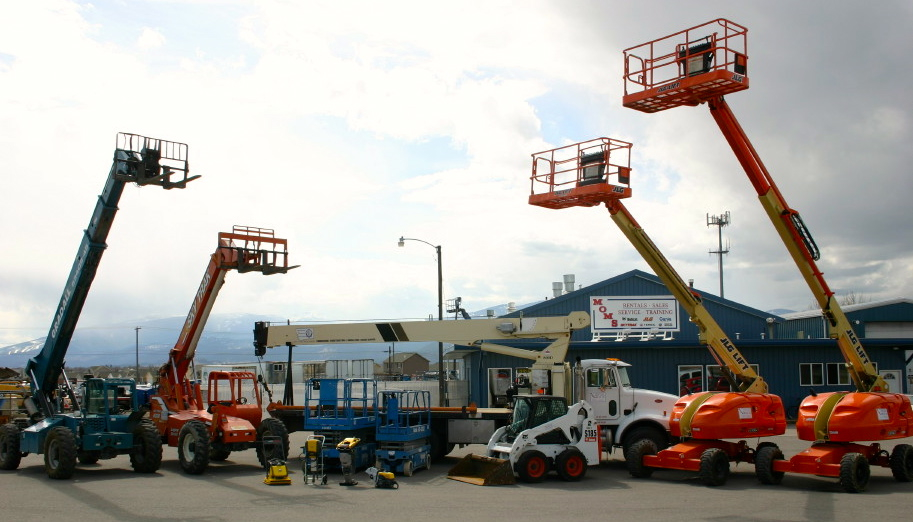Rental Company Near Me: Neighborhood Solutions for Equipment Rentals
Rental Company Near Me: Neighborhood Solutions for Equipment Rentals
Blog Article
Optimize Your Budget Plan by Understanding the Prices Connected With Building Equipment Services
Comprehending the full range of costs related to construction devices rentals is critical for optimizing your budget. While the first rental charge may appear simple, various added costs-- such as transport, fuel surcharges, and upkeep-- can quickly collect, affecting your economic preparation. In addition, recognizing numerous charges and the details of rental contracts can assist avoid unforeseen economic burdens. What methods can be employed to successfully handle these prices and guarantee a much more reliable rental experience?
Introduction of Rental Costs
When taking into consideration building tools leasings, comprehending the connected costs is vital for effective budgeting and project planning. Rental prices can differ dramatically based on a number of elements, including equipment type, duration of rental, and place. The initial rental fee usually mirrors the equipment's market demand and its connected functional capabilities, influencing the general expenditure.
In addition to the base rental rate, secondary costs may emerge, such as transportation fees, fuel additional charges, and maintenance fees. It is crucial to account for these extra expenses to accurately examine the complete cost of renting out tools. The rental period can influence pricing; longer rentals might certify for affordable prices, while temporary services might sustain greater daily charges.

Failure of Rental Prices
A thorough understanding of rental rates is crucial for professionals and task supervisors intending to enhance their budget plans. Rental rates for construction equipment typically are composed of a number of elements, including base rates, time-based costs, and usage costs.
Base rates are the core charges linked with the rental of the tools, commonly figured out by the type and dimension of the machinery. These prices can differ significantly, influenced by factors such as devices demand, accessibility, and local market trends. Time-based costs, which may be daily, weekly, or monthly, offer to accommodate various project timelines and rental periods.
In addition, rental rates may include usage charges, which apply when tools is made use of past a defined threshold, guaranteeing that the rental firm can represent damage. Seasonal demand changes can also impact rental prices, with peak building periods usually commanding higher costs.
In addition, comprehending the rental business's policies pertaining to upkeep and insurance coverage can give additional understanding right into the general price framework. By evaluating these elements, specialists can make enlightened choices, making sure the option of rental equipment aligns with both job demands and budget plan restrictions.
Extra Fees to Consider
Comprehending the complexities of added fees is essential for professionals to manage their total leasing costs properly. Past the common rental prices, different supplementary costs can considerably affect the overall expense of equipment rental. These charges commonly consist of distribution industrial tool rental near me and pickup costs, which can vary based on range and logistics associated with transferring the tools to and from the job site.
In addition, some rental business may enforce fuel additional charges if the devices is returned with much less fuel than when leased. It is additionally important to know prospective cleaning costs, specifically for customized tools that requires thorough upkeep after use.

Completely reviewing the rental contract and clarifying these extra costs ahead of time can aid professionals make sure and stay clear of unexpected expenses that budgets stay undamaged throughout the job lifecycle.
Maintenance and Repair Work Costs
Normal upkeep and fixing expenses are often overlooked variables that can substantially influence the general price of construction devices services. When renting devices, it is crucial to think about not just the rental costs but likewise the possible prices connected with keeping the equipment in optimum operating problem.
Numerous rental firms include fundamental maintenance as part of the rental arrangement; nonetheless, a lot more unanticipated malfunctions or substantial fixings can cause additional expenses. It's necessary to evaluate the rental contract very carefully to recognize what maintenance services are covered and what responsibilities fall on the renter.
Additionally, devices that is not well-maintained can result in inadequacies on duty website, possibly triggering hold-ups and increasing job prices. To reduce these risks, it is recommended to carry out regular examinations and preserve open interaction with the rental supplier relating to any type of issues that arise throughout usage.
Insurance Coverage and Liability Expenses
Insurance coverage and obligation costs are critical parts that can significantly affect the overall expenditure of building and construction devices rentals (dozer rental). These expenses make certain that both the rental company and the customer are safeguarded from possible monetary losses arising from mishaps, damages, or theft throughout the rental duration

Additionally, customers need to know any type of deductibles or exemptions in the insurance plan, as these can affect possible out-of-pocket costs. Recognizing the terms and problems of any kind of insurance coverage is essential to avoid unforeseen costs. Ultimately, budgeting for insurance policy and responsibility expenses can help ensure a smoother rental experience and protect versus economic dangers connected with building and construction tasks.
Conclusion
In conclusion, a comprehensive understanding of the costs connected with building equipment leasings is essential for efficient spending plan management. Eventually, informed decision-making concerning devices leasings adds to the total success of building endeavors.
Rental prices can differ significantly based on several variables, including tools page kind, duration of rental, and place (dozer rental). The rental duration can impact prices; longer rentals might qualify you can look here for reduced rates, while temporary rentals may incur higher day-to-day fees
By conducting detailed research study and involving with credible rental companies, service providers can effectively navigate the complexities of rental rates, eventually optimizing their financial sources.
Past the conventional rental prices, various additional fees can significantly affect the complete price of tools rental. Rental companies typically supply liability insurance coverage that covers injuries to third parties or damage to residential property, while tools damages insurance can cover the expense of fixings or replacement if the leased tools is harmed.
Report this page